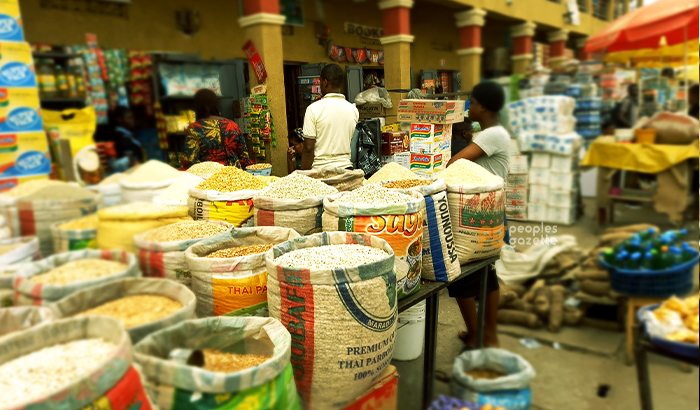In recent weeks, Nigerians have found themselves increasingly burdened by the skyrocketing cost of food owing to surging inflation.
National Bureau of Statistics (NBS), said the year-on-year rise in food costs was caused by increases in prices of oil and fat, bread and cereals, potatoes, yam and other tubers, as well as fish, fruits, meat, and vegetables.
NBS pointed that the inflation is driven largely by high cost of food rose to 22.22% in April, 2023.
Market survey of food prices as of July 2023, indicate that a basket of tomatoes goes between N90,000 and N100,000, against the N20,000 previous price; while a basket of pepper initially sold at N12,000 and N15,000, now sells between N40,000 and N45,000.
Other food items such as Golden Penny Pasta Spaghetti of 500g X 20 pcs (per carton) sells at N10,200, while Chicken Flavour Instant Noodles 100g X40 goes for N8,000 and Knorr Chicken Maggi (per carton) now sells at N21,000.
Besides inflation, the persistent rise in food prices has further been attributed to high price of petrol, supply chain disruptions, currency devaluation, and inadequate agricultural infrastructure.
The cumulative effect of these issues has created a dire situation for ordinary Nigerians, who are now grappling with food insecurity and escalating costs.
Farmers on the order hands are confronted with mounting production costs due to increasing prices of fertilizers, pesticides, and farming equipment. Coupled with the scarcity of quality seeds and non-reliable irrigation systems.
47 year old Emmanuel Ikechukwu, who lives in Orozo, FCT, with a family of 6 said that he has never experienced this kind of hardship occasioned by high prices of food and transport fare in his entire life.
“This high cost of things in the market is too much for us to bear. There is no increase in salaries but everything have added. How can a government make policies that always put ordinary citizens in perpetual hardship? Can’t we have hope in this country anymore”, he decried.
Some families struggle to afford basic necessities, putting immense strain on their livelihoods and overall well-being due to the incessant price of food items. Households are left with limited options as their purchasing power diminishes, and the basic food items they once relied upon become unaffordable luxuries.
A school teacher, Mallam Abubakar Usman who lives in Karu, FCT, similarly lamented the high cost of food.
He said, “As it is right now, my brother, we are skipping meals even with my 3 children because our purchasing power has been reduced by high cost of food and all other items, we are hopeful that one day our saviour will come in this country”.











